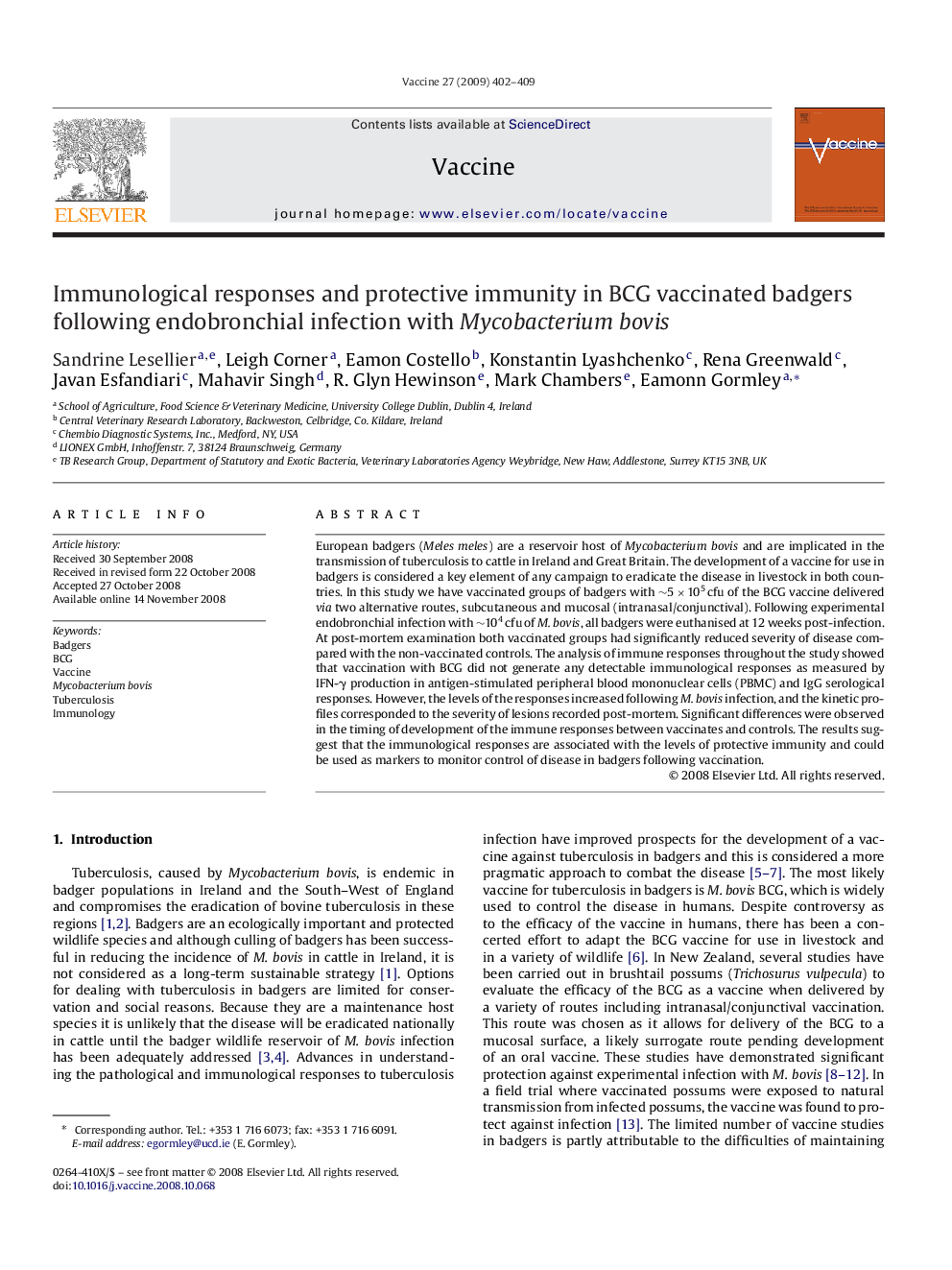| Article ID | Journal | Published Year | Pages | File Type |
|---|---|---|---|---|
| 2405594 | Vaccine | 2009 | 8 Pages |
European badgers (Meles meles) are a reservoir host of Mycobacterium bovis and are implicated in the transmission of tuberculosis to cattle in Ireland and Great Britain. The development of a vaccine for use in badgers is considered a key element of any campaign to eradicate the disease in livestock in both countries. In this study we have vaccinated groups of badgers with ∼5 × 105 cfu of the BCG vaccine delivered via two alternative routes, subcutaneous and mucosal (intranasal/conjunctival). Following experimental endobronchial infection with ∼104 cfu of M. bovis, all badgers were euthanised at 12 weeks post-infection. At post-mortem examination both vaccinated groups had significantly reduced severity of disease compared with the non-vaccinated controls. The analysis of immune responses throughout the study showed that vaccination with BCG did not generate any detectable immunological responses as measured by IFN-γ production in antigen-stimulated peripheral blood mononuclear cells (PBMC) and IgG serological responses. However, the levels of the responses increased following M. bovis infection, and the kinetic profiles corresponded to the severity of lesions recorded post-mortem. Significant differences were observed in the timing of development of the immune responses between vaccinates and controls. The results suggest that the immunological responses are associated with the levels of protective immunity and could be used as markers to monitor control of disease in badgers following vaccination.
